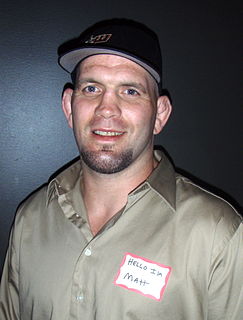A Quote by Robert Kiyosaki
For something to collapse, not all systems have to shut down. In most cases, just one system is enough. For example, the human body is a system of systems. If just one system, such as the cardiovascular system, shuts down, death follows.
Related Quotes
The techno-industrial system is exceptionally tough due to its so-called "democratic" structure and its resulting flexibility. Because dictatorial systems tend to be rigid, social tensions and resistance can be built up in them to the point where they damage and weaken the system and may lead to revolution. But in a "democratic" system, when social tension and resistance build up dangerously the system backs off enough, it compromises enough, to bring the tensions down to a safe level.
We have power... Our power isn’t in a political system, or a religious system, or in an economic system, or in a military system; these are authoritarian systems... they have power... but it’s not reality. The power of our intelligence, individually or collectively IS the power; this is the power that any industrial ruling class truly fears: clear coherent human beings.
I think the Scandinavian health systems are better when it comes to preventative care than the German system, because in the Scandinavian systems, the government is really more active in defining treatment, goals and defining health priorities. The German system is a competitive system with little government intervention. The price for this is that the government cannot set a health agenda. And the Scandinavian systems have little competition, so you often do have waiting lists. But on the other hand, you then have the government which can push for prevention.
The German health care system is unique in its attempt to combine competition among sickness funds on the one hand and a universal coverage plan on the other hand. Most health care systems are either one or the other, so you either have private insurance and competition but not everyone is covered for everything, or you have a single-payer system. So the ideal types are like the American system on the one hand or the Scandinavian or U.K. systems on the other end.
Germany tries to combine the advantages.
A lot of the so-called systems composers have this thing that the system is always right. You don't fiddle with it at all. Well, I don't think that. I think the system is as right as you judge it to be. If for some reason you don't like a bit of it you must trust your intuition on that. I don't take a doctrinaire approach to systems.
I see people allowing their lives to diminish, to become shallow, so they can't enjoy the deep wells of experience. Maybe it's always been this way, when the heart tends to shut down. If only the heart shut down and there were no repercussions, it would be O.K., but when the heart shuts down, the whole system goes into a kind of despair that is intolerable.


































